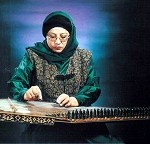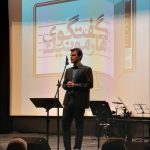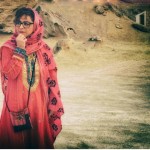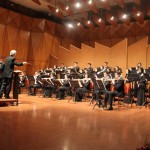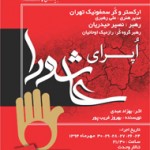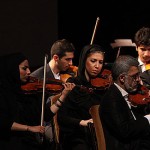
In a momentous celebration of two decades, the “Arasbaran Cultural Center” was the stage for the 20th anniversary of “Harmony Talk”, an online journal that has become a cornerstone in the music community. Sadjad Pourghanad, the editor-in-chief, delivered a speech that resonated with gratitude and vision.
Pourghanad began by honoring Kamran Vatanabadi, the founder of Harmony Talk, whose foresight in establishing wireless internet in Iran has been pivotal. Vatanabadi’s legacy is immortalized through Harmony Talk, which continues to thrive under his guidance.
The journey from Vatanabadi’s 100-day music blog to a comprehensive website was a collaborative effort, supported by a dedicated team of writers and translators, and financially backed by Datak internet company.
Pourghannad highlighted the seven years under Kamran Vatanabadi and Babak Arshad’s leadership, as Harmony Talk’s most prosperous period. Despite the content being primarily aimed at the general public at that time, there was a wide range of topics covered.
The first Harmony Talk crisis occurred in 2011 when Datak’s financial support was cut off, but fortunately, all the original writers of the site agreed to continue their collaboration on an honorary basis. However, since then, there has been a noticeable decline in the number of articles “exclusively” written for Harmony Talk.
During this period, the journal gradually moved towards more specialized content because elementary music education articles had mostly been published in the early period and it was necessary to take further steps.
Today, there are university students who have had Harmony Talk in their lives since they were born and have been reading the journal since they started music. Now, Harmony Talk is an integral part of many academic researches, with its articles frequently cited in music theses.
Numerous plans and designs were presented during that period and when Datak’s support was cut off in the last 13 years, very few of them were realized.
The main reason for this was a lack of financial and human resources interested in this field.
Now that the number of active physical and online music magazines in the whole country is less than the digits of one hand and many were closed due to a lack of necessary supervision, this is where the importance of HarmonyTalk and its sustainability becomes more apparent.
The journal’s resilience is further highlighted by its extensive archive of over 70,000 articles.
The loss of two influential writers, Mohsen Ghaane’ Basiri and Khosro Jafarzadeh, is deeply felt, yet their contributions live on through Harmony Talk.
It’s important to recognize the hard work and determination of those involved, but it may also be necessary to explore new avenues for securing funding or attracting more expert staff to accelerate the growth and development of Harmony Talk.
Pourghanad explains: As we celebrate this milestone, we acknowledge the challenges ahead. The financial sustainability of Harmony Talk relies on the personal income of its directors and the voluntary efforts of its staff. This have limited the site’s ability to expand and progress as quickly as desired. Yet, this has not stalled the site’s growth or its commitment to providing valuable content to its readers.
In closing, Pourghanad’s speech was a tribute to Harmony Talk’s past achievements and a hopeful look towards its future.
It is a reminder that while change is inevitable, the essence of Harmony Talk will continue to inspire and inform for years to come.

